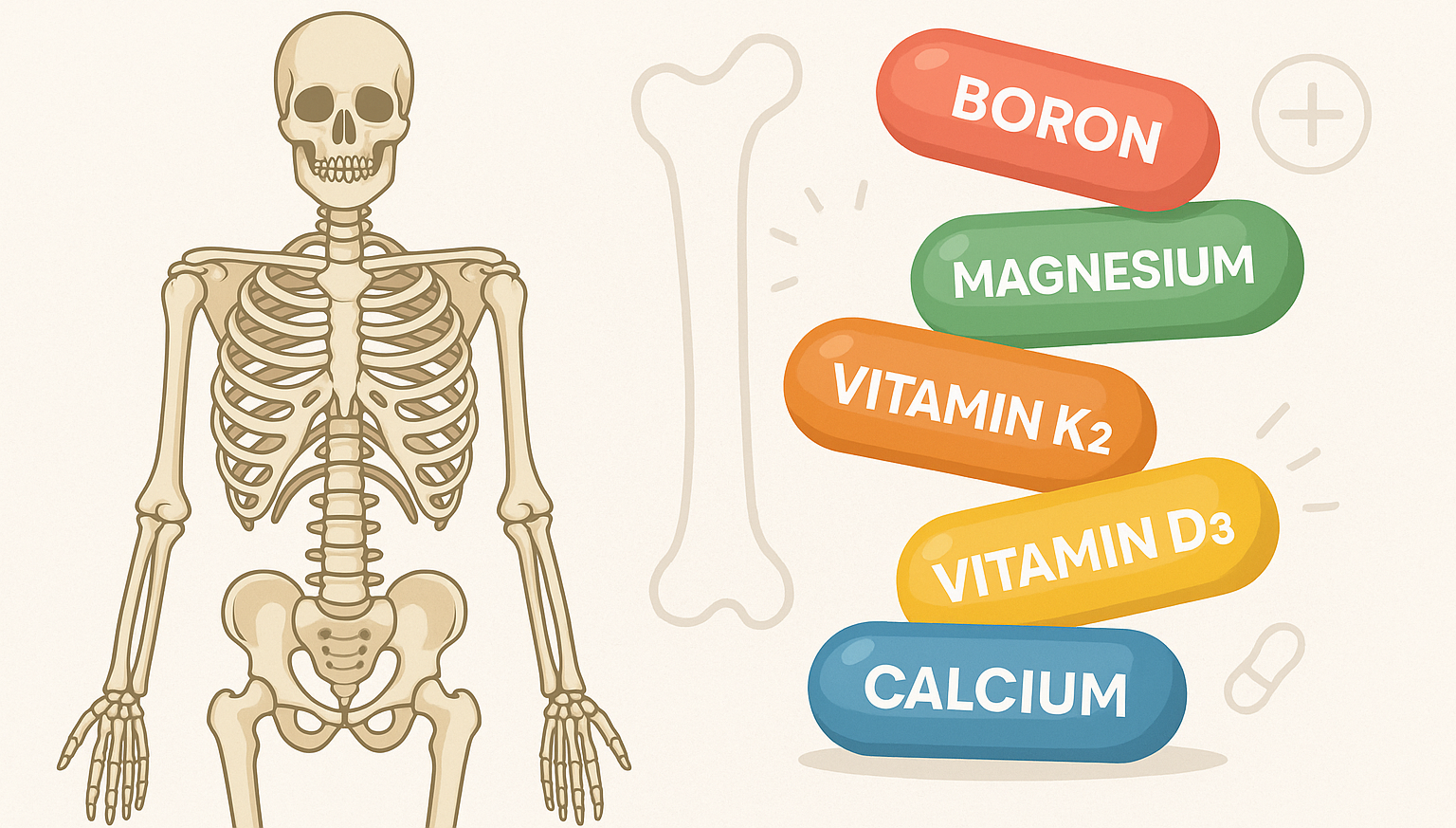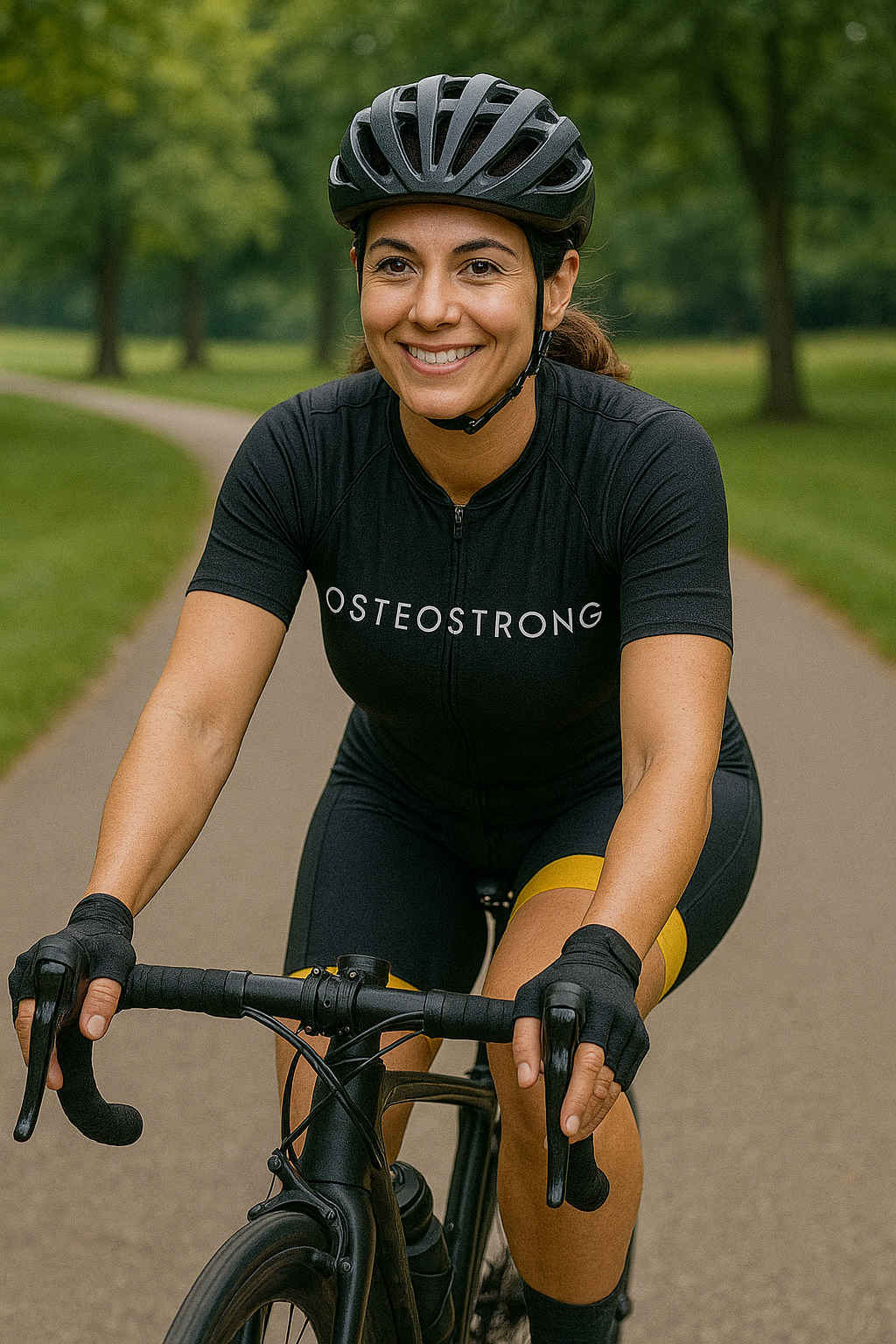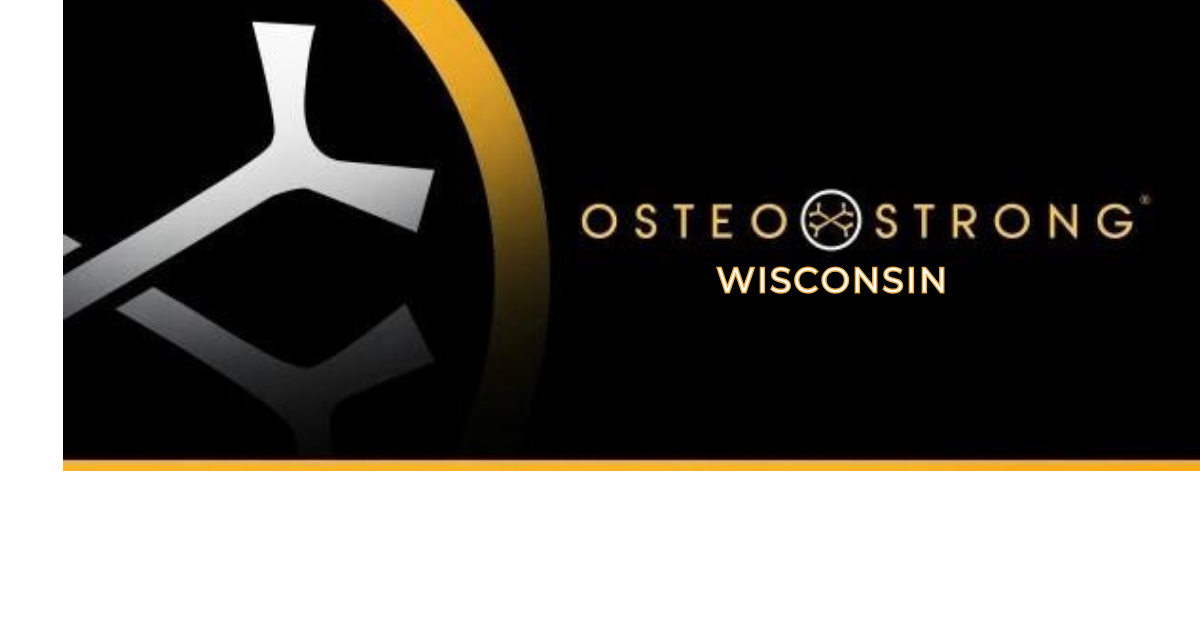
Nutritional Building Blocks for Bone Building When it comes to bone building, there are four key elements to success: proper loading of the skeletal system, nutrition (adding the things that are good for us), lifestyle choices (limiting the things that are bad for us), and including other exercise to create an active lifestyle. Today we are going to focus on how nutrition can help accelerate the process of bone building. For some people this can be the difference between simply trying to slow bone loss versus achieving something even greater - increasing bone density. Most people understand that you cannot do intense workouts and then expect to build muscle without having the proper amount of protein. And inversely we cannot expect to just consume lots of protein and expect to build muscle. We need both the trigger to strengthen and the building blocks. The same goes for our skeletal system. We need to trigger a response in the body to grow bone and the proper nutrients to build it. At OsteoStrong, our Spectrum process is the trigger and AlgaeCal is our recommended supplement to support effective bone building. While there are many nutrients our body uses to build bone, there are some that are very key. Let’s walk through how these essential vitamins and minerals work together for your bone health: Calcium While the most well-known key to building bone, and making up about 60% of our bone, our body needs the right type and amount of calcium. In order to absorb and utilize calcium, it needs to be in a highly soluble form, which is usually going to be naturally occurring in our diet or plant based. Your body can only work with so much calcium at a time. You want to get about 1000mg per day, but you want to try and get individual dosing down to 3-500mg at a time, and 3-5 hours apart. This gives your body the time it needs to process and absorb calcium. Try to avoid calcium carbonate. This is the most traditional form of calcium. It’s abundant and cheap, and unfortunately our bodies have a hard time absorbing calcium carbonate. And when we don’t absorb nutrients, they need to go somewhere. Free calcium in our bodies can settle in places like arteries and kidneys. Read your labels! Beware of supplements that claim to be plant based, but then also add calcium carbonate. Be careful of foods that claim to be rich in calcium, such as almond milk and orange juice, that actually contain calcium carbonate or even calcium hydroxide, which can actually be toxic in larger doses. Vitamin D3 D3 (cholecalciferol) is the form of vitamin D produced in human skin when exposed to UVB sunlight and is the most bioactive and preferred form of vitamin D for supplementation. D3 is essential for calcium to be broken down properly, which allows for much higher absorption. Studies have also shown its role in regulating phosphorus, the balance between osteoblasts and osteoclasts, and the parathyroid, which plays a part in balancing calcium in your body. Nearly every cell in our body has D3 receptors and supports a large array of functions in our bodies including immune system, muscles, mood, hormone regulation, organ health, and disease prevention, among others. Vitamin K2 (MK4 or MK7) K2 is a fat-soluble vitamin that plays a key role in calcium metabolism and helps direct calcium to the bones and away from soft tissues, including arteries and kidneys. It can activate osteocalcin, a bone-building protein made by osteoblasts. When activated by K2, it helps bind calcium into the bone matrix. It can activate Matrix Gla Protein (MGP) which inhibits both calcification of the arteries and kidney stones. Magnesium Magnesium is a macro-mineral involved in over 300 biochemical processes, including bone formation, muscle contraction, nerve signaling, and hormone regulation. Magnesium helps convert vitamin D3 into its active and useable form. Works with K2 to prevent excess calcium from accumulating in soft tissues. Supports proper integration of calcium and phosphate into the bone matrix. Boron Boron is a naturally occurring trace element found in fruits, vegetables, nuts, and certain minerals. Though required only in small amounts, its impact on bone health is important. Boron increases the half-life of vitamin D3 in the bloodstream, making it more effective over time. Boron helps retain calcium and magnesium in the body by reducing urinary excretion - critical for mineral balance. It can also enhance osteoblast activity, regulate estrogen and testosterone, and act as a natural anti-inflammatory. We recommend AlgaeCal because they have figured out the proper balance of all these nutrients and are currently the only supplements clinically supported to increase bone density. Through our partnership with AlgaeCal, you will find the lowest prices you get on AlgaeCal products without long-term buys or subscriptions. Our team is here to support you on your journey. Contact us anytime if you have any questions. Lake Country - Delafield WI: 262.649.1964 | lakecountry@osteostrong.me Madison East - Cottage Grove WI: 608.709.7620 | madisoneast@osteostrong.me Disclaimer: The information provided here is for general informational purposes only and is not intended to be medical advice. Always seek the guidance of your doctor or other qualified health professional with any questions you may have regarding your health or a medical condition.
Search our blog



